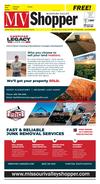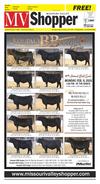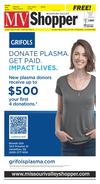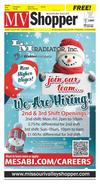111516_YKMV_A13.pdf









shop online at www.missourivalleyshopper.com
Holiday Party Survival Guide:
Tips to Avoid Weight Gain
November 15, 2016 • Page 13
Why Are You Avoiding the Doctor?
Most Americans want to stay healthy
and prevent disease and illness. For many,
Lights decorate streets across the counDon’t Overdo the Buffet
this means getting regular check-ups and
try. The holiday season is officially upon
Holiday meals tend to be large, buffetusing their health plan benefits. For others,
us! However, with the joy of the season
style gatherings where it is easy to overeat it seems that ignorance is bliss.
comes the tendency to over-indulge.
and fill up on unhealthy options.
According to the Centers for Disease
On average, Americans gain approxiTo avoid overeating, Mangieri recomControl and Prevention (CDC), Americans
mately one to two pounds during the holimends loading your party plate with lean
get their preventive services only about half
day season. With just a few strategies from
protein and veggies. “But that poses a
the time, even though preventive care is fulnutrition experts, you can avoid weight
problem at many holiday parties because
ly covered at no cost by most health plans
gain while still enjoying friends, family and
treats and snacks are often all that fill the
under the Affordable Care Act. Preventive
holiday feasts.
countertops. Stay in control by taking your services save lives and decrease sufferDon’t Skip Meals
own healthy protein options with you such ing from advanced illnesses. Vaccinations
“In preparation for a holiday feast, do
as turkey meatballs, chicken skewers or a
prevent life-threatening diseases. Health
www.missourivalleyshopper.com
not skip meals throughout the day,” says
shrimp cocktail platter,” says Mangieri.
screenings can find serious conditions
Heather Mangieri, registered dietitian
Also note that it takes about 20 minutes early. Managing diabetes, high cholesterol
nutritionist and Academy of Nutrition and
for your stomach to tell your brain you are and high blood pressure can prevent heart
Dietetics spokesperson. “Skipping meals
full. “Before going back for seconds, take
attacks, strokes or kidney failure. Despite
can result in overeating later on.”
time to savor each bite and enjoy conversa- these facts, there are numerous reasons
Instead, Mangieri recommends eating
tion with friends and family,” says Mangieri. people avoid their doctors.
foods full of protein and high in fiber before
Don’t Splurge on Sweets
“Understanding why you avoid getting
the feast because these foods will fill you
“It is okay to save room for dessert, but your needed preventive care is the first step
up and satisfy hunger.
try to choose only one splurge item,” recin taking action for your health,” says Dr.
Don’t Forget to Exercise
ommends Smithson. “These sweet treats
Christina Stasiuk, senior medical director
The holidays are a busy time full of
can stick to your waistline and the added
for Cigna.
cooking, decorating, shopping and catchsugar may make you crash later.” Avoid
Dr. Christina and the experts at Cigna
ing up with loved ones. But remember, it
overdoing it on dessert and limit sugary
identified six types of people based on comis still important to make time for physical
beverages.
mon perceptions. Thinking about where you
activity.
Use these expert tips at the holiday din- fit can help you see why you may put off
“We have set a tradition to include a
ner table to maintain a healthful eating plan preventive care:
family walk over the holidays,” says registhroughout the entire season. The holidays
• Procrastinators: Procrastinators fear
tered dietitian nutritionist and Academy
are a wonderful time of the year, and it is
that a check-up will discover a condition
spokesperson Toby Smithson. “It’s a great
possible to enjoy this special time without that needs to be addressed and will impact
time to create memories, share in converweight gain.
them personally and financially. They delay
sation and sneak in exercise.”
or avoid getting a check-up to cope with
their apprehension.
• What-if Worriers: What-if Worriers
spend a lot of time thinking about unpleasant hypothetical situations and things.
While some worriers see a doctor for every
ache or pain, others avoid check-ups alto-
www.missourivalleyshopper.com
www.missourivalleyshopper.com
www.missourivalleyshopper.com
www.missourivalleyshopper.com
gether because they anticipate an unfavorable diagnosis.
• Solitary Sufferers: Many people don’t
get help from their doctors to avoid revealing personal issues or concerns -- especially
related to mental health or substance use
-- because they’re ashamed and worried
about being judged as weak by others. This
fear also keeps them from using their Employee Assistance Programs (EAP) at work.
• Super Savers: Super Savers always look
for a good deal and hate to pay full price
for anything. They pinch every penny and
may view a check-up as not worth the cost.
Some don’t even realize their health benefit
plan covers preventive care services with
no out-of-pocket costs, or how advanced
diseases may cost them much more time
and money.
• Workaholics: People in this group value
work over any other activity. They may consider a check-up to be a waste of time, and
don’t realize that poor health can impact
the work performance they prize.
• Self-Diagnosers: Self-Diagnosers feel
confident that they are engaging in healthy
activities and the need for a check-up
doesn’t really apply to them. They may not
consider that early on, many conditions
have no physical symptoms.
No matter what your own motivations
and concerns may be, you can get tips on
taking control of your health and using your
health benefits to the fullest at Cigna.com.
“From vaccinations to early detection,
optimal health absolutely includes preventive care. Get past the hurdles and schedule
your recommended check-ups. It is crucial
for your long-term health and wellness,”
says Dr. Christina.
www.missourivalleyshopper.com
How Arts and Crafts Can Help Heal Veterans in Your Community
When people hear there might be a
bomb nearby, most will try to get as far
away as fast as possible. U.S. Army Specialist Brandon Sanford and his bomb-sniffing
dog Rexo, however, were not as lucky.
Sanford and Rexo were part of the Army’s bomb detection unit, tasked with finding life-threatening explosive devices. “I was
nervous on the first patrol missions since
our duty was to find explosives designed to
kill American soldiers,” said Sanford.
When a roadside bomb exploded near
his vehicle in 2008, Sanford suffered a
traumatic brain injury (TBI), among other
wounds. Because of his injuries, Sanford
suffers from seizures as well as problems
with balance, fine motor skills and more.
Basic tasks like buttoning a shirt are now
daunting endeavors for him. And so the
long, arduous process of healing began.
Along with surgery and physical therapy,
craft therapy became part of Sanford’s treatment plan.
When men and women return from war
or other military postings, they often bring
home more than their duffel bags. That
is why Help Heal Veterans (Heal Vets), a
nonprofit founded during the Vietnam War,
operates on the knowledge that not all
medicine comes in a bottle. As America’s
largest supplier of therapeutic arts and
crafts resources, Heal Vets has distributed
more than 29 million kits since 1971, averaging 43,000 kits per month. The kits consist
of hundreds of craft categories like woodworking, leather, models and a variety of
needlecrafts.
Many doctors and occupational therapists prescribe arts and crafts as an important component of a treatment plan. Such
an approach provides tremendous therapeutic and rehabilitative benefits, including improving fine motor skills, cognitive
functioning, memory and dexterity. Crafts
can also help alleviate anger issues and the
severity of post-traumatic stress disorder
www.missourivalleyshopper.com
www.missourivalleyshopper.com
www.missourivalleyshopper.com
www.missourivalleyshopper.com
(PTSD) and TBI triggers, such as anxiety,
memories, sadness and frustration.
In some cases, the benefits are physical as well. For example, stringing together
a leather craft might help with hand-eye
coordination and dexterity. Painting or
model building can ease symptoms of PTSD
or depression. Sanford said that working
with small pieces has helped him with his
hand-eye coordination. He also suffers from
short-term memory problems associated
with his TBI, so working on the kits helps
train his focus and concentration skills.
Since World War I, craft kits have consistently proven effective tools for veterans’
rehabilitation and healing. According to a
Health Care Data Inc. study, 89.6 percent
of patients surveyed felt Heal Vets craft
therapy helped maintain or improve their
physical capabilities. Furthermore, craft
projects help build family bonds when completed with loved ones, improve self-esteem
and surface previously untapped artistic
talent.
As Americans pay their respects this
month to those who have served, Heal Vets
encourages you to think about ways you
can help enrich the lives of the 22 million
U.S. veterans and military personnel. Heal
Vets relies solely on charitable donations to
produce its craft kits. For more information
about the program or to donate art supplies, journals and other tools that spark
creativity to a veterans’ organization near
you, visit HealVets.org.
“Today, one of every three Iraq and
Afghanistan veterans suffers from PTSD
and/or TBI. Even more, the suicide rate for
U.S. military members continues to rise.
Reawakening veterans’ enthusiasm for life,
therefore, remains an utmost priority,” said
Captain Joe McClain, a U.S. Navy veteran
and current Heal Vets CEO.




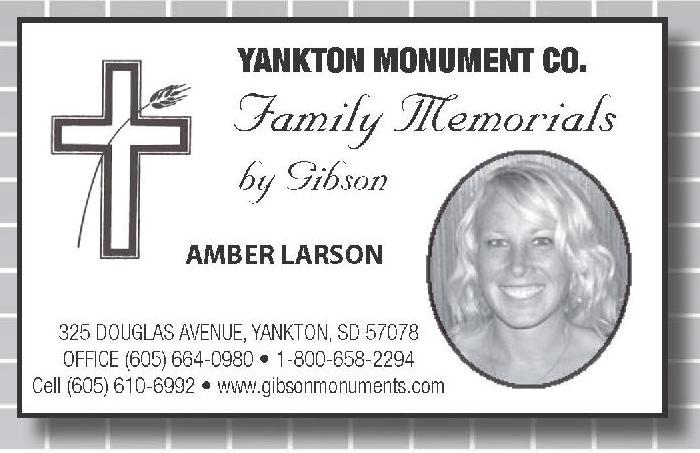

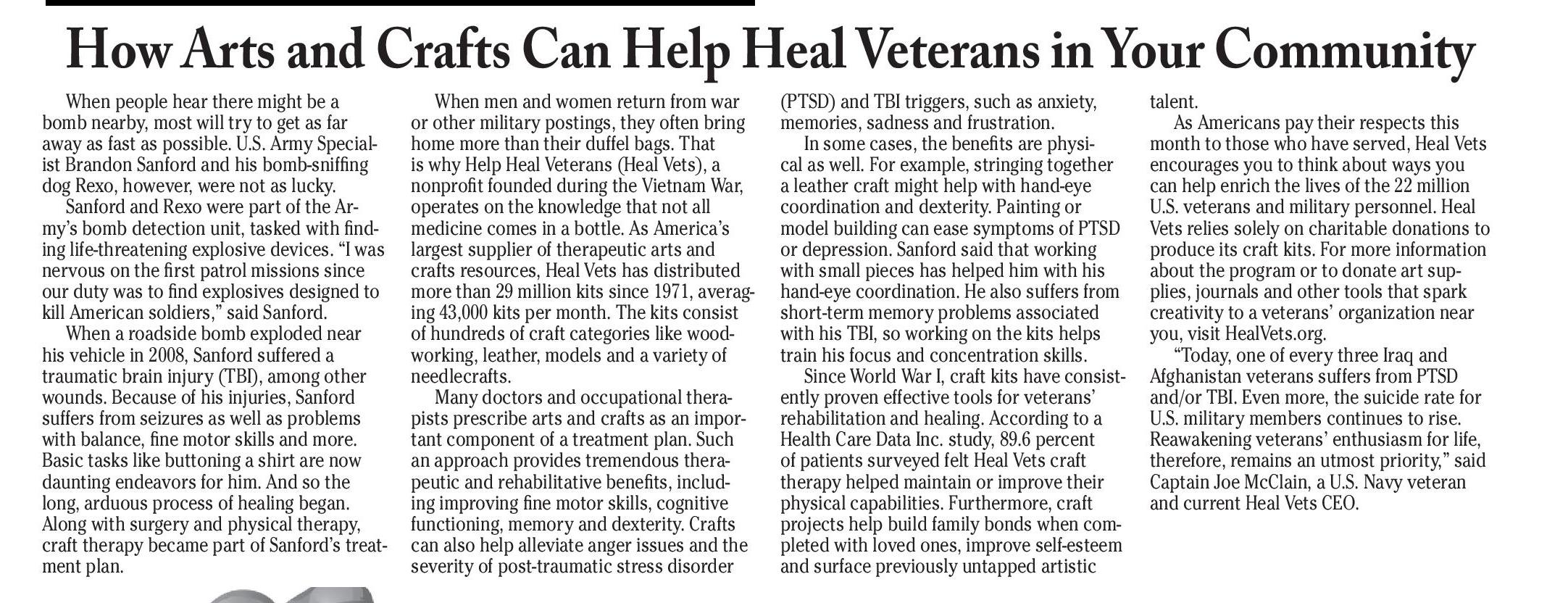
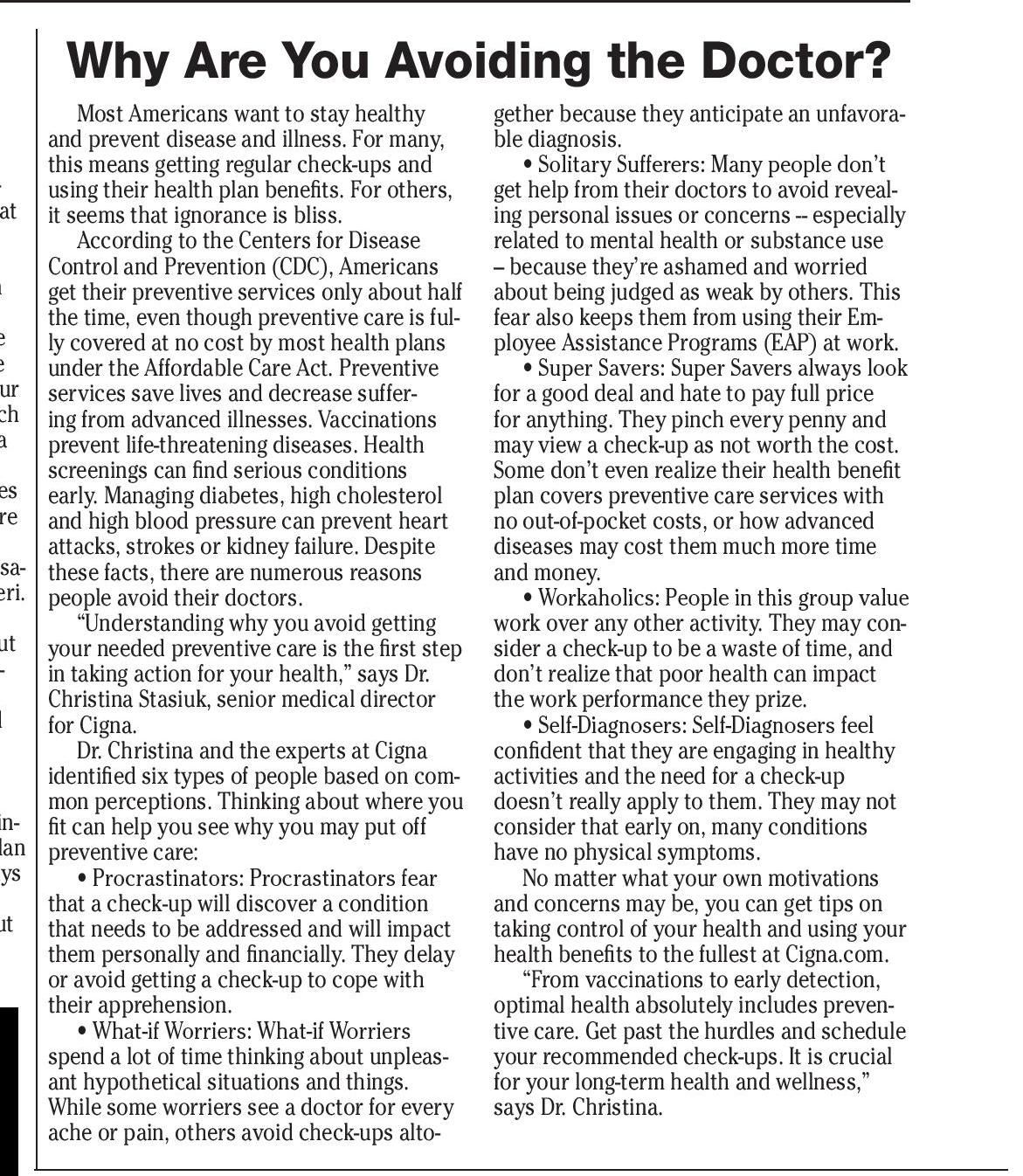
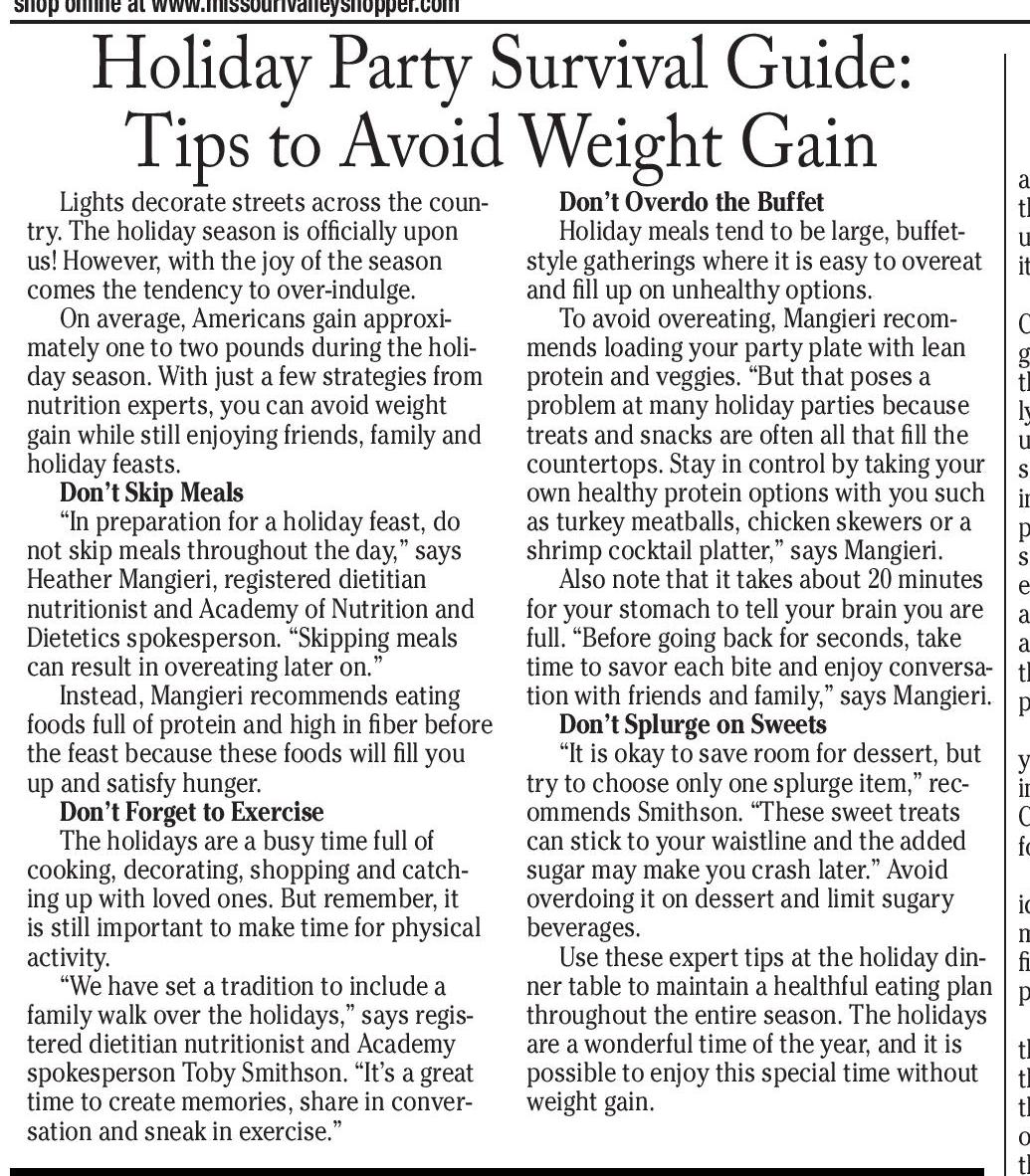

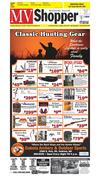
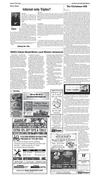
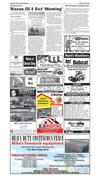
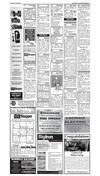
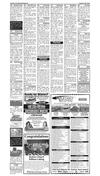
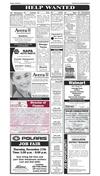
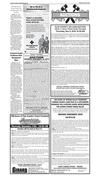
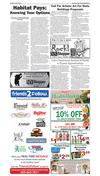
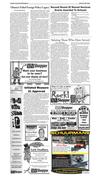
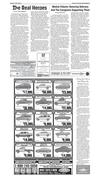
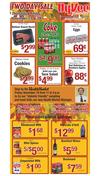
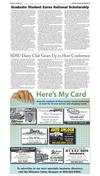
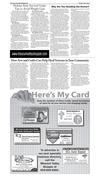
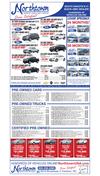
 Previous Page
Previous Page


